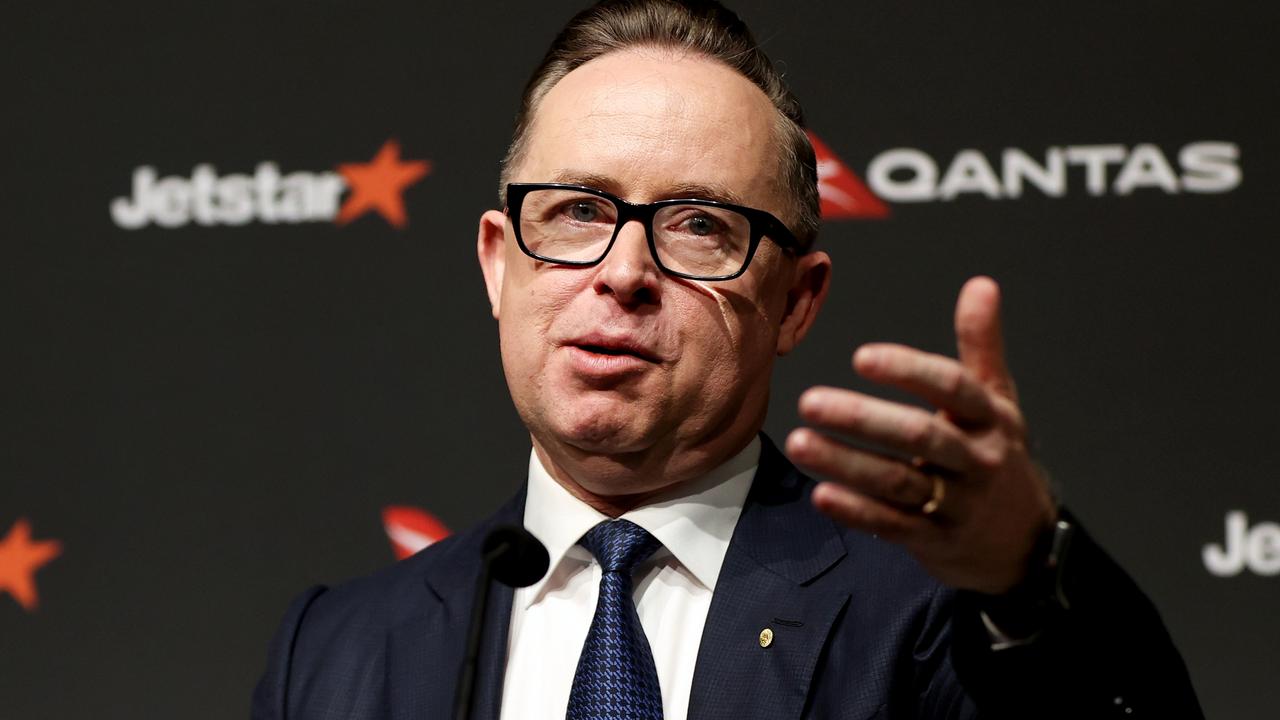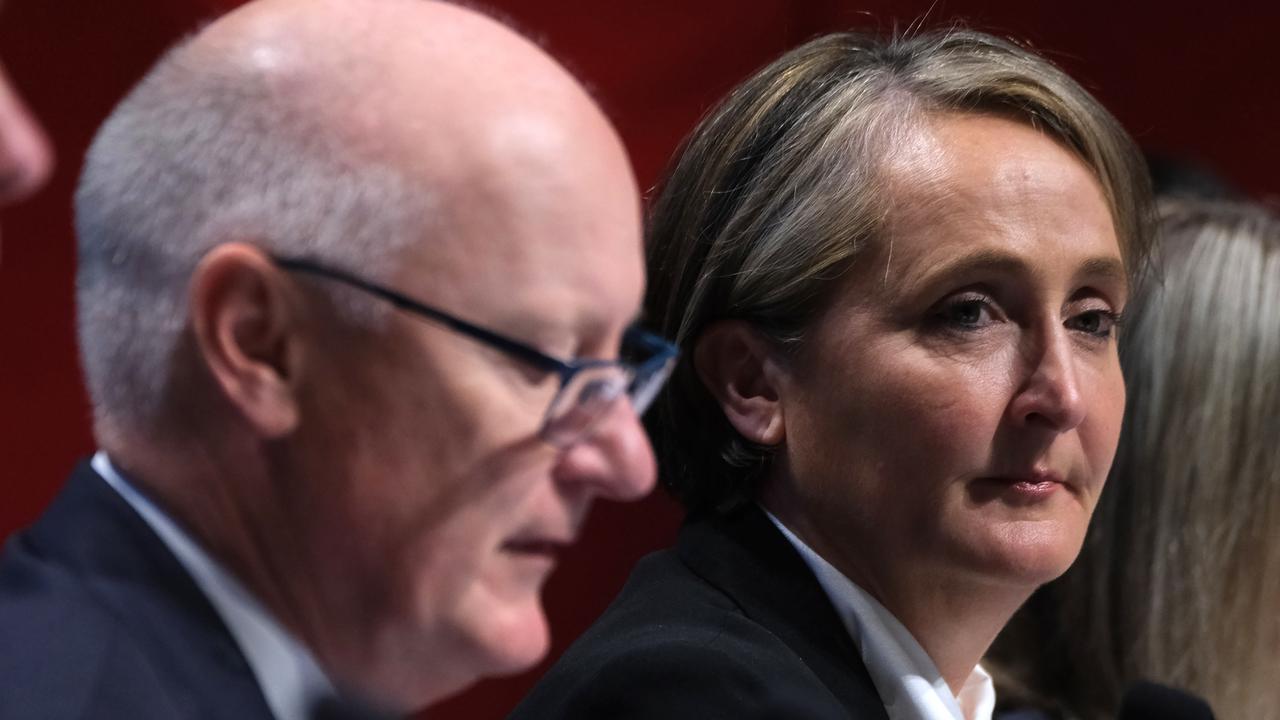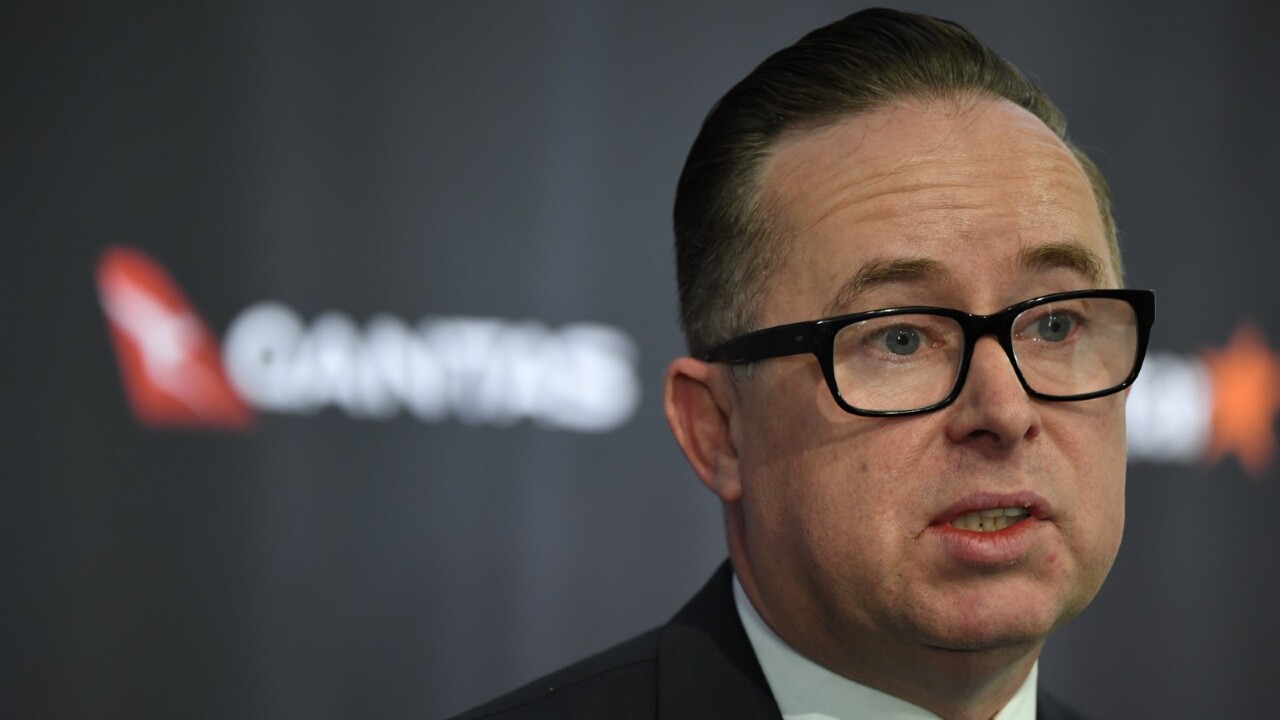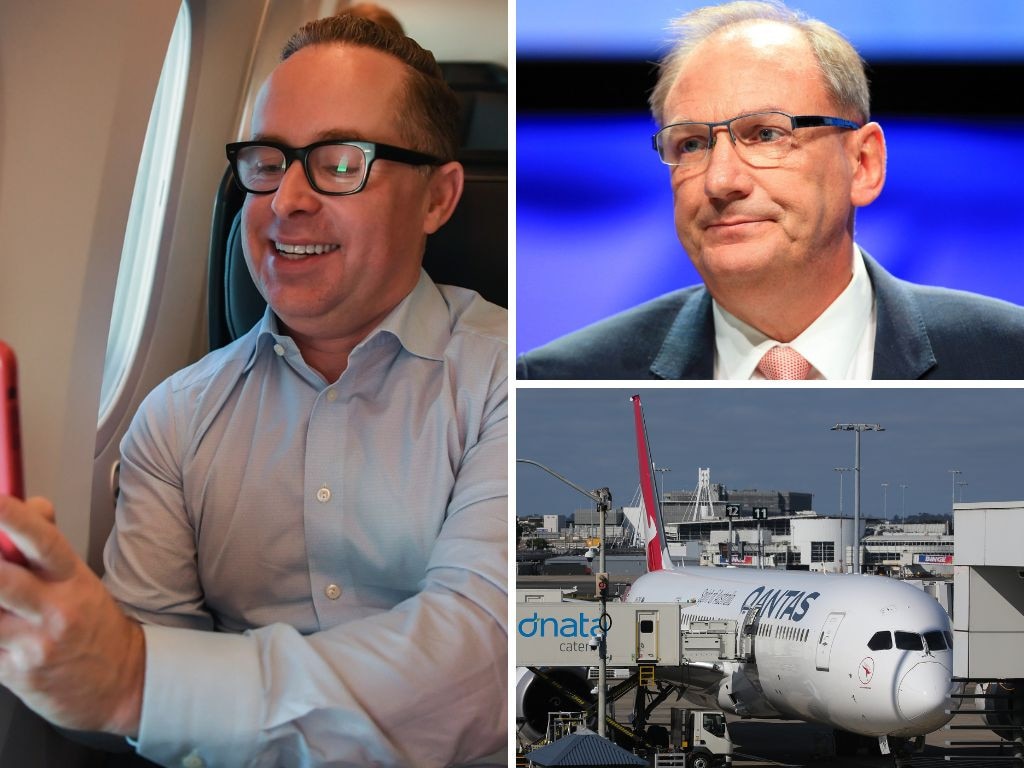Alan Joyce pay slashed as Qantas leaders lashed by internal review
The Qantas board will have to sign off on any public support of social issues in the future, after a review found such posturing ‘negatively impacted’ the airline.

Qantas CEO Vanessa Hudson will have to get board approval to involve the airline in any social or party-political issues such as last year’s support for the voice referendum, under recommended changes to corporate governance.
The recommendations emerged from a review undertaken by Qantas to address reputational damage to the airline and rule on the payment of executive bonuses.
To that end, it was decided former CEO Alan Joyce should be denied $9.36m in short- and long-term bonuses for 2023, reducing his package for that year from $24m to $14.9m.
Other executives, including Ms Hudson, were informed their short-term bonuses would be reduced by 33 per cent, in response to the review.
Should Mr Joyce object to the decision, his only recourse would be court action, which could threaten a further $5m in long-term bonuses still in the pipeline for the ex-CEO.
Chairman-elect John Mullen said the decision was reached after a review of key governance matters, which found mistakes had been made by the board and management that contributed to significant reputational and customer service issues.

These included lawsuits over so-called ghost flight ticket sales and the illegal outsourcing of workers; customer service shortcomings such as late flights and lost baggage; the handling of Covid travel credits; Mr Joyce’s $17m share sale, and; support levels for frontline employees.
The review also highlighted that there was no requirement for board approval for major support of social issues or campaigns, such as the painting of three planes with “yes” in the lead-up to the voice referendum.
It was noted such actions “negatively impacted Qantas’s relationship with stakeholders including customers, employees, investors and the broader community”.
In response, Qantas had “clearly defined” the threshold for board approval on issues that had the potential to become a party-political matter or significantly impact the group’s social licence to operate.

Mr Mullen said it was important the board understood what went wrong and learned from the mistakes of the past, as it was “clear Qantas had let Australians down”.
“Vanessa (Hudson) and her new management team have made positive progress towards delivering better outcomes for customers and employees but there is still a significant amount of work to be done to rebuild the trust of all stakeholders,” he said.
Unions and investors hailed the review and the recommendations as appropriate and necessary to restore public trust in the airline and the way it does business.
Mr Joyce declined to comment, but his biographer, Peter Harbison, said the decision took an unfair view of his 15 years at Qantas.
“It seems to be based on a very short-term perspective of his tenure, which really doesn’t do him justice,” said Mr Harbison.
“What I’m really focused on is what they said about him, which was so innately inaccurate in terms of providing a perspective on what he did for Qantas over that 15 years. In a lot of ways it just takes a populist view of what happened in the last two years of his tenure.”
Australian and International Pilots Association president Tony Lucas said management and the board must now deliver the cultural change that had been promised. “We look forward to the restoration of the national carrier so it can proudly be called the ‘Spirit of Australia’ once more,” Captain Lucas said.
The Flight Attendants Association of Australia said the board renewal was “recognition that the airline needed to change the way it does business”.
FAAA federal secretary Teri O’Toole said airline management needed to recognise the hard work of the people-facing employees, who were copping the brunt of public opinion of Qantas.
“Cutting executive bonuses by reducing 33 per cent of their share allocation may be a start, but may not make employees feel their previous wage freezes and 3 per cent increases in enterprise agreements is enough to recognise their hard work,” said Ms O’Toole.
Transport Workers Union national secretary Michael Kaine said the review was important because it verified what workers, passengers and the Australian community had been saying for years.
“Qantas was a corporate dictatorship with a timorous board incapable of speaking up to Alan Joyce as CEO, who prioritised a toxic ‘profits at all costs’ culture,” said Mr Kaine. “The millions that have been withheld from Joyce and the board are a drop in the ocean compared to what they’ve already received but it is the right decision.”
Originally published as Alan Joyce pay slashed as Qantas leaders lashed by internal review





